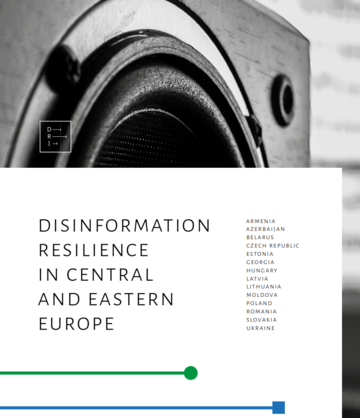
This digest has been produced in cooperation with the European Federation of Journalists (EFJ)
An integral part of the research is the Disinformation Resilience Index, which is quantitative assessment of exposure to Kremlin-led disinformation and the level of national resilience to disinformation campaigns.
While the report centers on Kremlin-led information invasions, it in many respects reveals the ability to resist any foreign backed information influence. However, the research reveals key findings:
- Elderly and national minorities are considered to be the most vulnerable groups for Kremlin-led propaganda and disinformation;
- Russian language-speaking minorities are especially vulnerable;
- Active followers of Orthodox Christian church are also in the group among the most susceptible to propaganda. For example, in Moldova, the church enjoys the highest level of trust in among all social institutions;
- Supporters of far-right social and political movements are a very important group easily susceptible to pro-Kremlin disinformation usage and popularity of Russian-language media platforms heavily determines the degree of population exposure to Kremlin-led messages;
- Media self-regulatory mechanisms are revealed to be most ineffective in the Central European region;
- Experts positively assess the role of civil society in withstanding foreign-triggered disinformation and manipulation campaigns and others.
The Index presents individual country analysis and profiles, including recommendations, on the topics of media literacy, digital debunking, institutional setup, legal regulations, and vulnerable groups.
Tags: Freedom of expression Ethics of journalism Fake news and disinformation Propaganda Czech Republic Slovakia Hungary Poland Azerbaijan Armenia Belarus Georgia Moldova Ukraine Estonia Latvia Lithuania RomaniaThe content of this article can be used according to the terms of Creative Commons: Attribution-NonCommercial 4.0 International (CC BY-NC 4.0) . To do so use the the wording "this article was originally published on the Resource Centre on Media Freedom in Europe" including a direct active link to the original article page.


